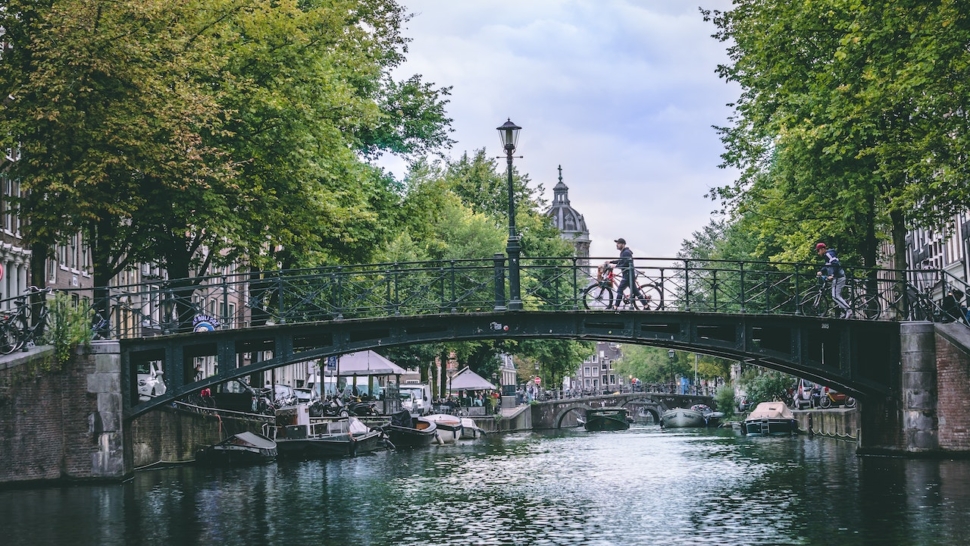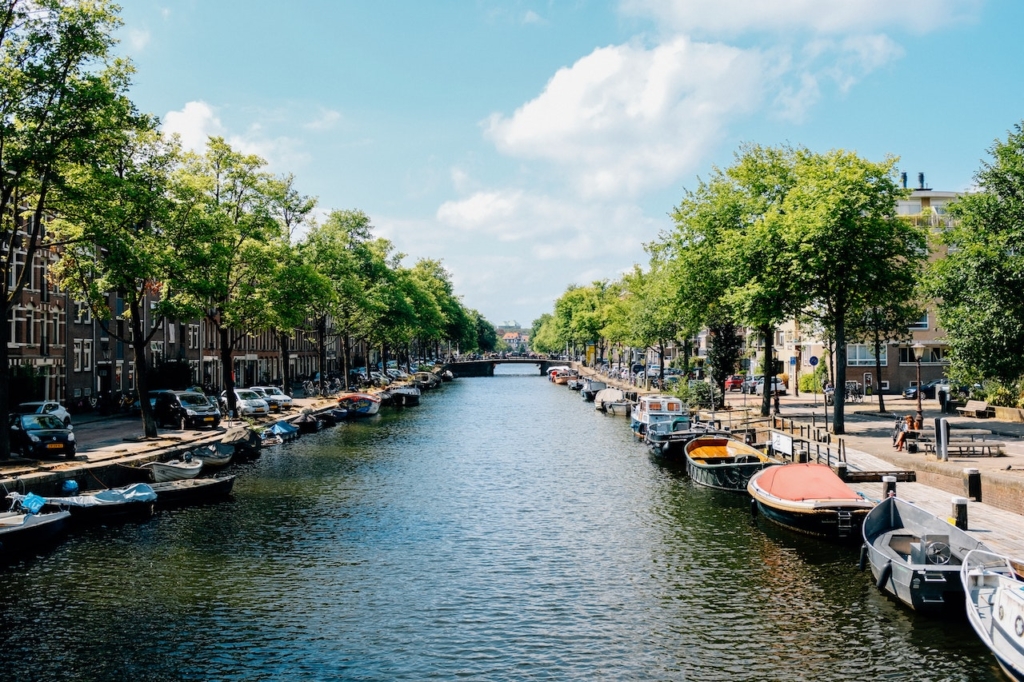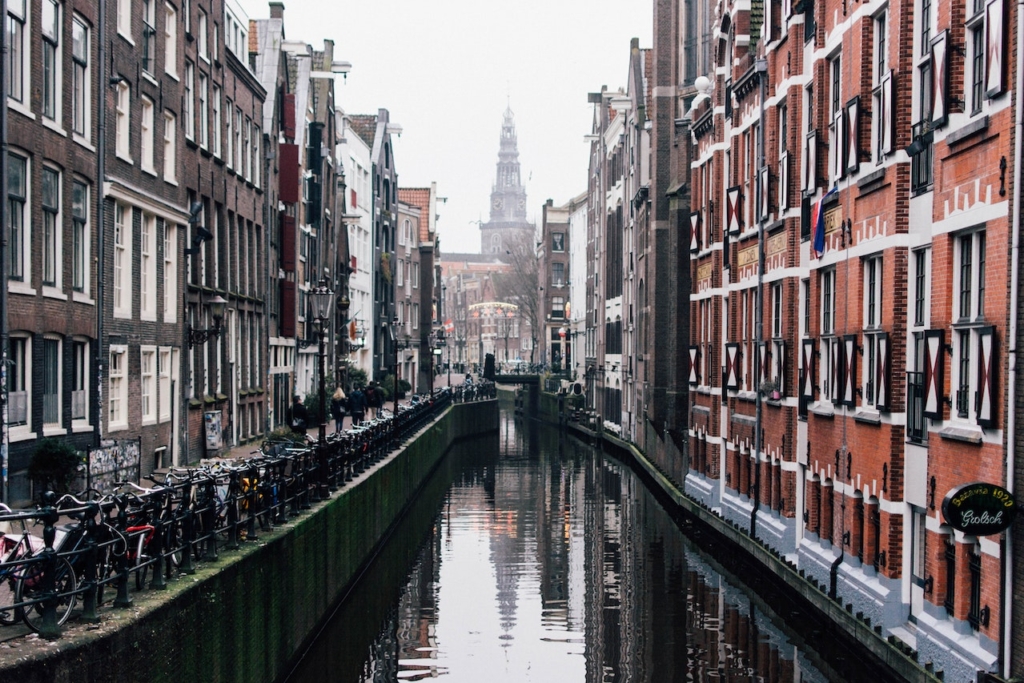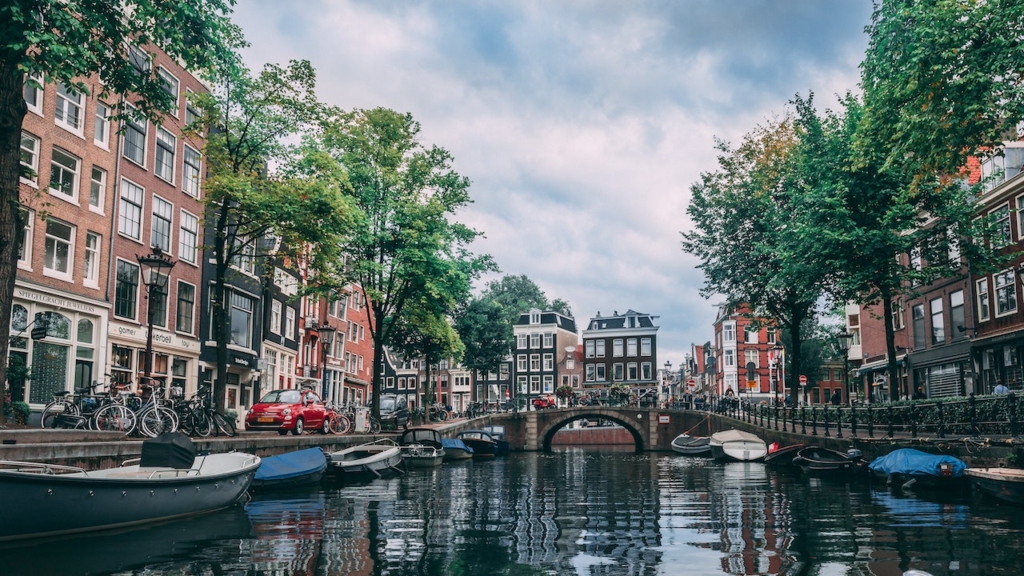Amsterdam is a vibrant and diverse city known for its beautiful canals, rich history, and vibrant culture. Located in the Netherlands, Amsterdam is the largest city in the country and is home to over 800,000 residents. The city is also a popular destination for tourists, attracting millions of visitors each year.
One of the most iconic features of Amsterdam is its extensive network of canals, which have earned it the nickname “Venice of the North.” The canals were built in the 17th century as part of a plan to expand the city, and today they are a UNESCO World Heritage Site. Visitors can take a boat tour of the canals to see the city from a unique perspective and learn about Amsterdam’s history and architecture.
In addition to its canals, Amsterdam is known for its rich cultural scene. The city is home to numerous museums and galleries, including the Rijksmuseum, the Van Gogh Museum, and the Stedelijk Museum. Amsterdam is also famous for its vibrant nightlife, with numerous bars, clubs, and music venues catering to a diverse range of tastes. Whether you’re interested in art, history, or simply having a good time, Amsterdam has something to offer for everyone.
History
Amsterdam has a rich and diverse history that dates back to the 13th century. Over the years, the city has transformed from a small fishing village to a major commercial hub. This section will explore some of the key events and periods in Amsterdam’s history.
Golden Age
During the Dutch Golden Age in the 17th century, Amsterdam became a leading center for trade and commerce. The city’s strategic location on the waterways of Europe made it an ideal location for merchants to conduct business. Amsterdam’s port became one of the busiest in the world, and the city grew rapidly as a result.
World War II
During World War II, Amsterdam was occupied by German forces. The Jewish population of the city was targeted by the Nazis, and many were deported to concentration camps. The most famous victim of this persecution was Anne Frank, a young Jewish girl who kept a diary of her experiences in hiding during the war. Today, the Anne Frank House is a popular tourist attraction and serves as a reminder of the atrocities that took place during the war.
Throughout its history, Amsterdam has faced many challenges and overcome them to become the vibrant and diverse city it is today. The city’s population continues to grow, and it remains a center for trade and commerce in Europe.
Geography
Amsterdam is the capital city of the Netherlands and is located in the province of North Holland. The city is situated in the western part of the country, close to the North Sea. Amsterdam is known for its unique geography, which includes a network of canals and waterways, as well as flat land that is below sea level.
Canals
The city of Amsterdam is famous for its canals, which are a defining feature of the city’s landscape. The canals were built in the 17th century as a way to manage the city’s water levels and provide transportation for goods and people. Amsterdam has more than 100 kilometers of canals, and the three main canals are Herengracht, Prinsengracht, and Keizersgracht. Visitors can take a canal cruise to see the city from a different perspective and learn about the history of the canals.
Land and Water
Amsterdam is situated on flat land that is below sea level, which makes it vulnerable to flooding. To prevent this, the city has a complex system of dikes and dams that help to manage water levels and protect the city from flooding. The IJ and Amstel rivers flow through the city, and the North Sea is located nearby.
The city is divided into several districts, including the Zuid district, which is known for its upscale shops and restaurants, and the Canal Ring, which is a UNESCO World Heritage Site. Amsterdam is often referred to as the “Venice of the North” because of its many waterways and canals.
Overall, Amsterdam’s unique geography has played a significant role in shaping the city’s history and culture. The canals and waterways have been an important part of the city’s transportation system for centuries, and the flat land and water management systems have helped to protect the city from flooding.
Architecture
Amsterdam is known for its unique and diverse architecture, which reflects the city’s rich history and culture. The city’s architecture is a blend of different styles, ranging from Gothic and Renaissance to Art Nouveau and Modernism. The following sub-sections will provide an overview of some of the most notable architectural landmarks in Amsterdam.
Royal Palace
The Royal Palace of Amsterdam, also known as the Koninklijk Paleis Amsterdam, was built in the 17th century as the city hall of Amsterdam. The palace is located on Dam Square, in the heart of the city, and is a prime example of Dutch Classicism. The palace is open to the public and visitors can explore the grand halls, the Council Chamber, and the Royal Apartments.
Museums
Amsterdam is home to several museums that showcase the city’s rich architectural heritage. The Rijksmuseum, for example, is a world-renowned museum that houses a vast collection of Dutch art and history, including works by Rembrandt, Vermeer, and Van Gogh. The Stedelijk Museum, on the other hand, is dedicated to modern and contemporary art and design, and features works by artists such as Piet Mondrian and Gerrit Rietveld.
Other notable museums in Amsterdam include the Anne Frank House, which is located in the house where Anne Frank and her family hid from the Nazis during World War II, and Nemo, a science museum that is housed in a striking green building designed by Renzo Piano.
In conclusion, Amsterdam’s architecture is a reflection of the city’s rich history and culture, and visitors to the city can explore a wide range of architectural landmarks and museums that showcase this heritage.
Culture and Lifestyle
Cycling
Amsterdam is well-known for being a city of cyclists. With over 800,000 bicycles in the city, cycling is a popular mode of transportation for locals and tourists alike. The city has an extensive network of bike paths, making it easy and safe to explore the city by bike. Bicycles can be rented from various locations throughout the city, and guided bike tours are also available for those who want to learn more about the city’s history and culture.
Coffeeshops and Prostitution
Amsterdam’s liberal attitude towards drugs and prostitution has made it a popular destination for tourists seeking these activities. Coffeeshops, where marijuana can be legally purchased and consumed, are a common sight throughout the city. The Red Light District is also a popular attraction, where prostitution is legal and regulated. However, it is important to note that these activities are not representative of Amsterdam’s culture as a whole, and visitors should be respectful of the city’s laws and norms.
Festivals and Events
Amsterdam is home to a variety of festivals and events throughout the year. King’s Day, celebrated on April 27th, is one of the city’s biggest celebrations, with street parties and concerts throughout the city. The Amsterdam Dance Event, held in October, is one of the world’s largest electronic dance music festivals. Other notable events include the Amsterdam Light Festival, the Holland Festival, and the Pride Amsterdam festival, which celebrates the city’s LGBTQ+ community.
Overall, Amsterdam’s culture and lifestyle are diverse and vibrant, with a mix of traditional and modern influences. From its cycling culture to its liberal attitudes towards drugs and prostitution, Amsterdam offers a unique experience for visitors looking to explore a different way of living.
Tourism
Amsterdam is a popular tourist destination and is known for its vibrant culture, beautiful architecture, and rich history. The city attracts millions of visitors every year, and there is plenty to see and do for tourists of all ages.
Attractions
Amsterdam is home to many famous landmarks and attractions, including the Van Gogh Museum, the Rijksmuseum, and the Anne Frank House. Visitors can also take a stroll through the beautiful Vondelpark or explore the historic Jordaan neighborhood. The city is also famous for its canal cruises, which offer a unique perspective on Amsterdam’s stunning architecture.
Travel Information
Getting around Amsterdam is easy, thanks to the city’s extensive public transport network. The city is served by buses and trains, and the Schiphol Airport is just a short train ride away from the city center. Visitors can also purchase an I Amsterdam City Card, which provides free access to many of the city’s top attractions and includes unlimited use of public transport.
Activities
In addition to its famous attractions, Amsterdam offers a wide range of activities for tourists. Visitors can take a bike tour of the city, sample some of the local cuisine at one of the city’s many restaurants, or visit one of the city’s many museums. The city is also famous for its nightlife, with many bars and clubs open late into the night.
Overall, Amsterdam is a must-visit destination for anyone interested in history, culture, and architecture. With its rich history, stunning landmarks, and vibrant culture, there is truly something for everyone in this beautiful city.
Economy
Amsterdam is known for having a strong and diverse economy. The city is home to many international companies and has a thriving startup scene. The economy is driven by trade, finance, and tourism.
Trade and Growth
The Port of Amsterdam is one of the largest ports in Europe and plays a significant role in the city’s economy. The port handles a variety of goods, including oil, coal, and agricultural products. The city’s strategic location and excellent transportation infrastructure make it an ideal location for trade.
The economy of Amsterdam has been growing steadily in recent years. In 2019, the city’s GDP was €93 billion, and it is projected to continue growing in the coming years. The city’s economic growth is driven by a variety of factors, including a strong startup scene, a well-educated workforce, and a favorable business climate.
Major Companies
Amsterdam is home to many major international companies, including ING, Uber, and Booking.com. ING is one of the largest banks in the Netherlands and has its headquarters in Amsterdam. Uber has a significant presence in the city and has been expanding its operations in recent years. Booking.com, a subsidiary of Booking Holdings, is one of the largest online travel agencies in the world and has its headquarters in Amsterdam.
In addition to these major companies, Amsterdam has a thriving startup scene. The city is home to many innovative startups in a variety of industries, including fintech, biotech, and e-commerce. The startup scene is supported by a variety of resources, including coworking spaces, incubators, and accelerators.
Overall, Amsterdam’s strong economy, favorable business climate, and diverse range of industries make it an attractive location for international companies and startups alike.
Education
Amsterdam is home to some of the most prestigious universities and colleges in the Netherlands. The city has a long history of providing high-quality education to its residents and students from all over the world. The education system in Amsterdam is known for its innovative approach to teaching and learning.
The University of Amsterdam is one of the most renowned universities in the city. It is a public research university that offers a wide range of undergraduate and graduate programs in various fields such as law, economics, social sciences, humanities, and natural sciences. The university has a strong reputation for research and is ranked among the top universities in Europe.
Apart from the University of Amsterdam, the city has several other universities and colleges that offer excellent education. The VU University Amsterdam, for example, is a public research university that specializes in social and behavioral sciences. The Amsterdam University of Applied Sciences is another popular institution that offers practical and vocational education in various fields such as engineering, business, and healthcare.
The education system in Amsterdam is designed to provide students with a well-rounded education that prepares them for the challenges of the real world. The city’s universities and colleges offer a diverse range of programs that cater to the needs and interests of students from different backgrounds and cultures. Students in Amsterdam can also benefit from the city’s vibrant cultural scene and numerous extracurricular activities that enhance their learning experience.



